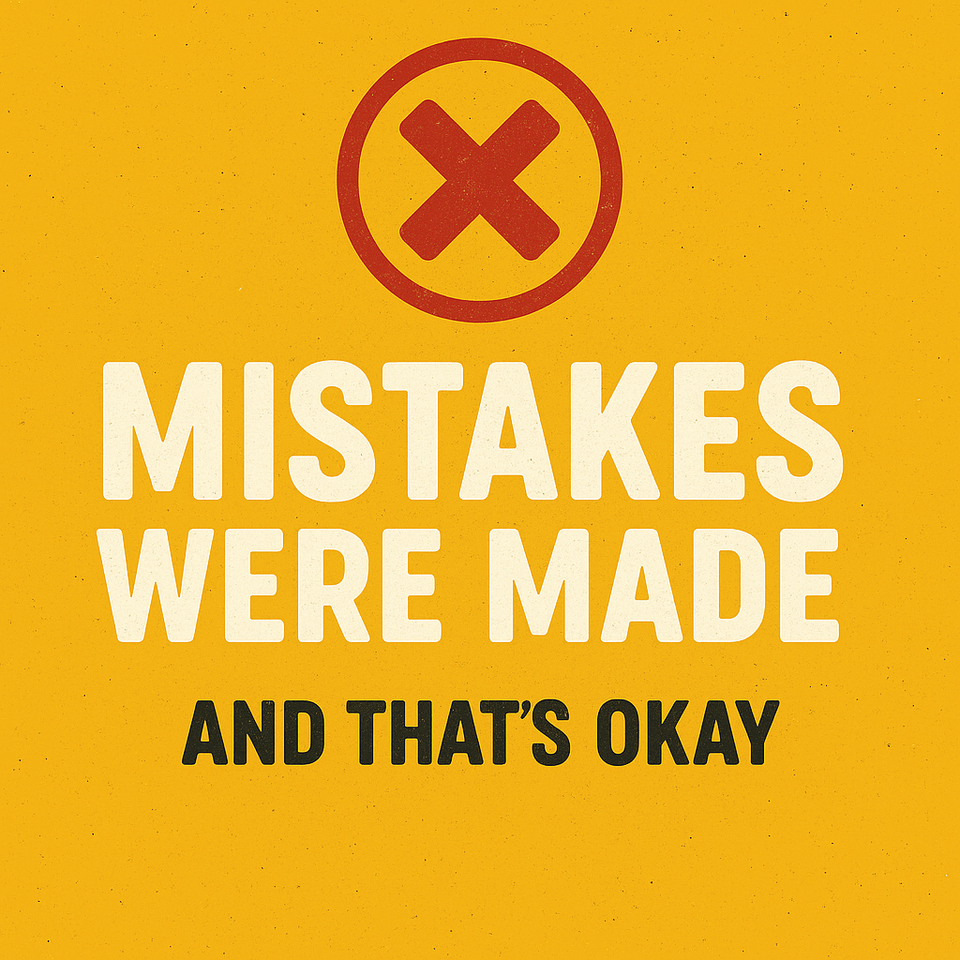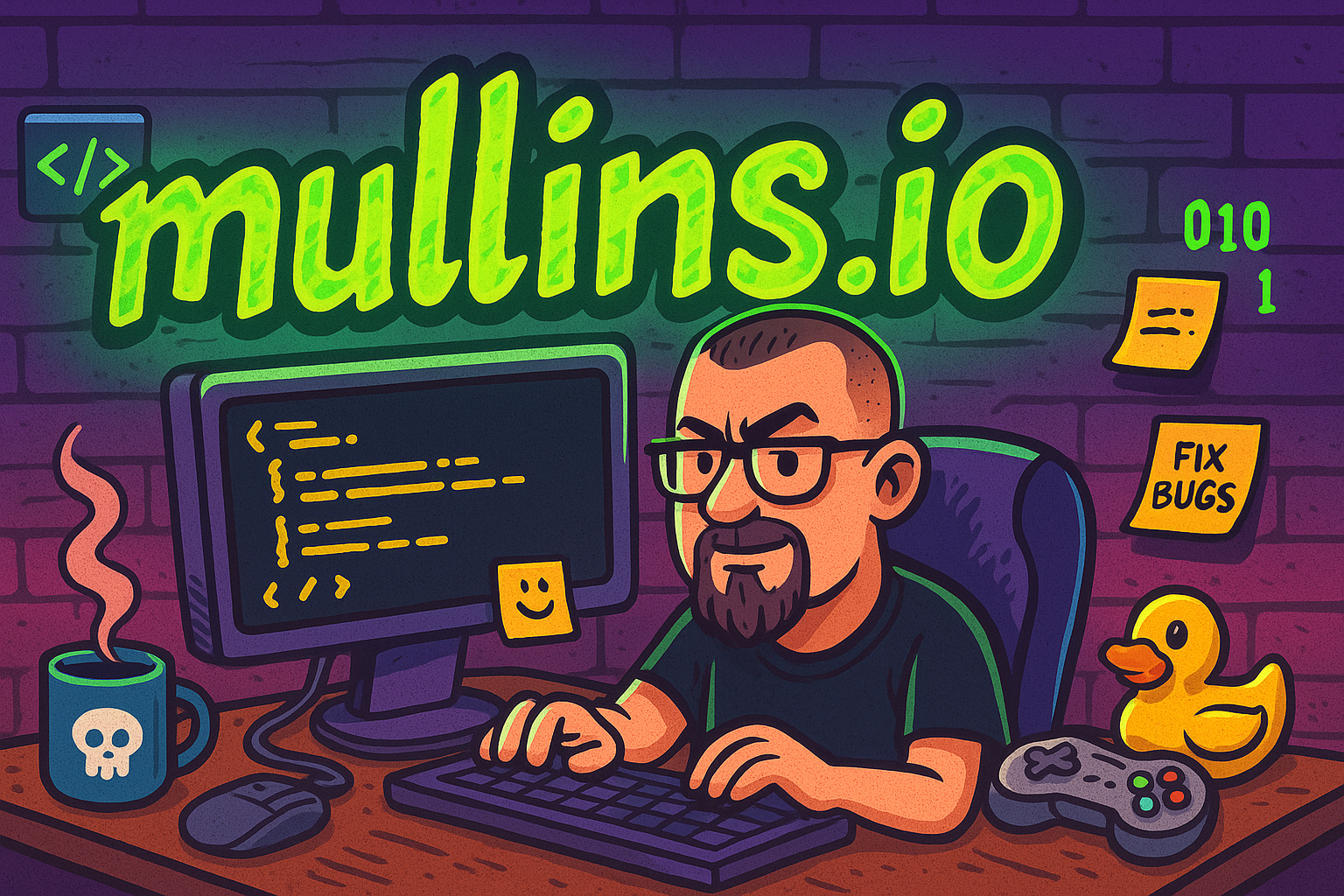Mistakes Were Made, And That’s Okay

How messing up can be the best thing for your career, your team, and your process.
Let me tell you something no one puts on their resume:
I’ve broken things.
Production things.
Customer-facing things.
Things with logs that looked like a horror movie.
If you're in tech long enough, you're going to mess up. Not "maybe." Not "if you're careless." You will make mistakes — and that's not only okay, it's expected.
But here’s the secret:
Mistakes aren’t the end. They’re the beginning of better.
“I Can’t Believe I Did That”
The moment after a mistake hits is gut-wrenching. Your heart sinks. Slack lights up. Maybe someone passive-aggressively pings “Who deployed?” in the general channel.
You start spiraling:
“Am I cut out for this?”
“Is my team going to lose trust in me?”
“How did I not see that?”
And look — we’ve all been there. If you're new to tech, you might think you're alone in this. You're not.
If you're a senior? Same deal. You’re just better at writing the fix and the Slack apology.
The truth is, making mistakes in tech is part of the job. Why?
Because building software is complex.
Because no one operates in perfect information.
Because humans are still involved.
Own It. Learn From It. Then Level Up.
The first step after a mistake isn’t to hide it. It’s to own it.
Accountability doesn’t mean beating yourself up. It means acknowledging it, communicating clearly, and being part of the fix.
But don’t stop at the fix. Go deeper:
What caused it?
Was it a miss in testing? A bad assumption? A rushed deploy?
Did the process fail you? Or was there no process to begin with?
This is where growth really happens. Not just as a developer — but as someone your team can rely on.
Blame the Process, Not the Person
Here’s where teams go wrong: they treat mistakes as personal failures instead of system failures.
Good teams don’t hunt for who pushed the button. They ask why the system let that button do what it did without a double-check.
If the process requires tribal knowledge or a gut feeling to avoid catastrophe, guess what?
The process is broken.
Here’s what you can do:
Build checklists for risky steps.
Add pre-commit hooks, CI checks, or automated tests.
Use postmortems to improve, not to punish.
Speak up when you see a process gap. Others are probably working around it silently too.
Normalize Mistakes. Normalize Improvement.
Tech teams love to talk about “blameless culture,” but too often we still reward perfection and punish missteps.
The teams that thrive are the ones that say:
“We all make mistakes. The goal is to never make the same one twice.”
Mistakes are learning signals. They point to the exact place your process, code, or culture needs reinforcement.
So instead of hiding from them? Use them.
As fuel. As insight. As a compass for growth.
You Are Not Your Mistake
If no one’s told you this before, let me be the first:
You’re allowed to make mistakes.
You’re allowed to break things.
You’re allowed to feel embarrassed.
You’re allowed to learn.
What matters is what you do next:
Do you fix it?
Do you understand it?
Do you make the system safer for the next dev?
If so, then congrats. You’re not just a good developer — you’re a great teammate.
TL;DR
Because Let’s Be Honest
Everyone in tech makes mistakes.
It’s part of learning, not a sign of failure.
Own it. Fix it. Understand it.
Improve the system so it doesn't happen again.
You are not your mistake.
Hey, since you made it this far, you might actually care about becoming a better leader.
Good news: I wrote an ebook that’ll help you skip years of trial and error.





Comments ()